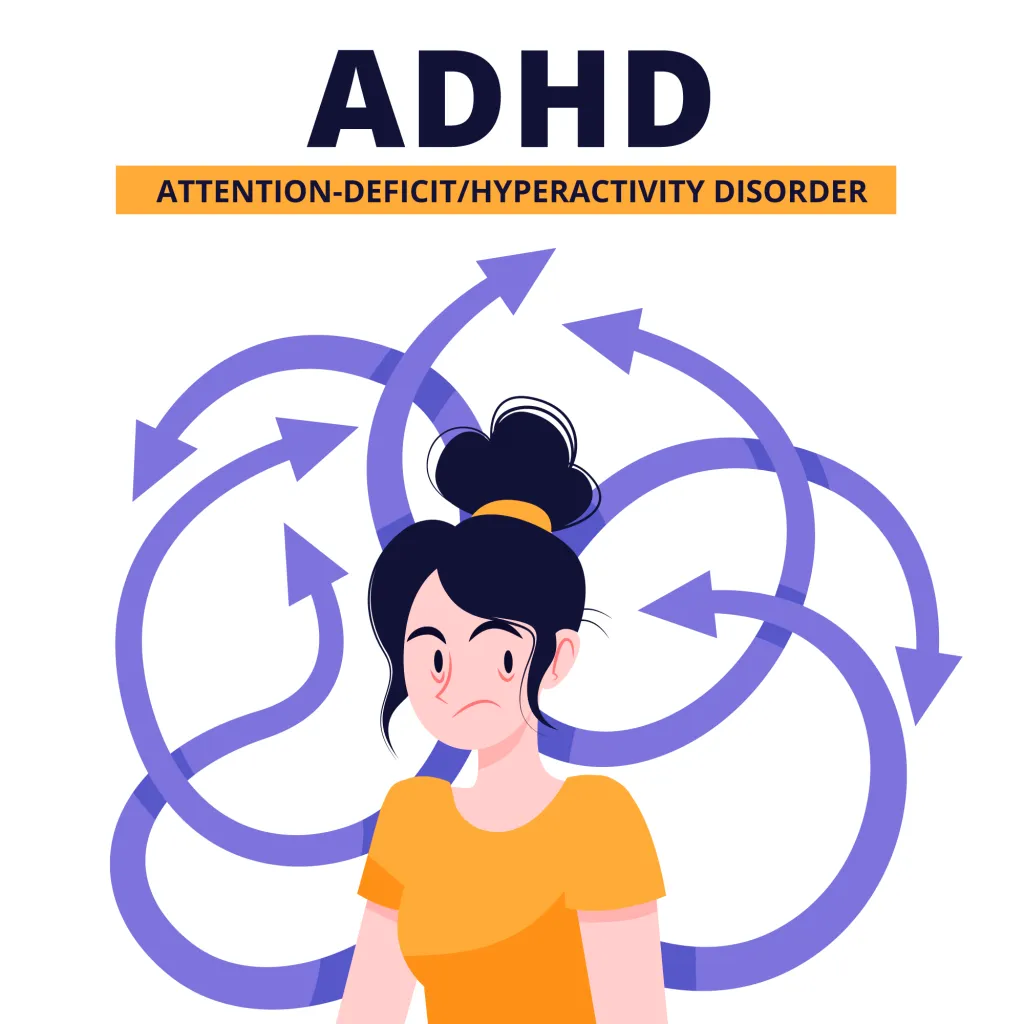despite being commonly associated with childhood and adolescence. As they age, people with ADHD may face unique challenges related to their symptoms and management. In recent years, there has been an increasing focus on the need to treat ADHD in older individuals and the possibility of using medications to treat the illness. This article examines the effects of ADHD medication on older adults, including concerns, considerations, and potential long-term benefits.
Understanding ADHD in Older Adults
Symptoms of ADHD in older individuals sometimes differ from those in children or younger adults. Hyperactivity may decrease with age, but symptoms of impulsivity, inattention, and executive dysfunction may persist or even worsen. Focus, time management, and task organization issues brought on by ADHD in older individuals can have an impact on relationships, career, and overall well-being.
Moreover, the symptoms of ADHD in older adults are often made worse by age-related changes in cognitive performance, such as decreases in working memory, attentional control, and processing speed. These aging-related changes may exacerbate pre-existing symptoms and create new challenges for individuals with ADHD.
Challenges in Diagnosis
One of the biggest barriers to therapy for ADHD in older adults is the under- and misdiagnosis of the condition. Many older adults may have had undetected ADHD all of their lives and have written off their symptoms as personality traits or other mental health problems. Furthermore, age-related cognitive changes may misidentify or mask symptoms of ADHD, making diagnosis confusion.
Additionally, health care providers may be less likely to identify older adults with ADHD, which could lead to missing or delayed intervention opportunities. As a result, many elderly people with ADHD could not receive the right care or assistance to manage their symptoms, which could have a detrimental impact on their quality of life and capacity to function in later years.
The Role of Medication in Managing ADHD in Older Adults
Medication might be a helpful treatment option for older persons whose ADHD symptoms are troublesome or chronic. While methylphenidate and amphetamines are often prescribed stimulant medications for ADHD, little research has been done on the use of these drugs in the elderly. Based on the existing research, stimulant medicines may be safe and helpful for older adults with ADHD, provided that potential side effects and interactions are closely monitored.
Non-stimulant therapies like atomoxetine may also be considered if an older adult with ADHD is unable to take stimulant drugs or would prefer not to. Atomoxetine has been shown to improve executive function and symptoms of ADHD in older adults, but further research is required to determine its efficacy and tolerability in this population.
Considerations for Medication Management in Older Adults
Healthcare professionals must take into account a variety of factors when prescribing ADHD medication to older patients in order to treat them safely and effectively. These elements include:
Medical Comorbidities:
Seniors are more likely to suffer illnesses including diabetes, hypertension, and cardiovascular disease. The selection and dosage of drugs may be impacted by certain problems. Medical practitioners should examine the patient’s medical history and watch out for any possible side effects before giving ADHD medication.
Polypharmacy:
Adverse effects and drug interactions are more common in older adults who take multiple medications for various health conditions. Medical practitioners should carefully review the patient’s prescription schedule and consider any potential interactions before prescribing ADHD medication.
Potential Benefits of ADHD Medication in Older Adults
Prescription ADHD medicine has drawbacks and considerations for elderly patients, but it may also have benefits. These benefits include:
Improved Functioning:
Elderly people who take an ADHD medication report being able to better manage their symptoms and perform better in a number of contexts, including relationships, everyday duties, and the job. Medication can reduce impulsivity, increase focus, and promote self-regulation in older adults, enabling them to lead more independent and fulfilling lives.
Enhanced Quality of Life:
The quality of life for elderly people can be enhanced with appropriate treatment for ADHD. They are able to fully engage in their hobbies and pastimes and participate more actively in social and recreational events. ADHD medication can improve overall satisfaction and well-being while lowering anxiety and frustration.
Reduced Risk of Complications:
Adults with untreated ADHD are more prone to mishaps, physical harm, and psychological issues like depression and anxiety. By effectively treating ADHD symptoms with medication, healthcare professionals can help reduce the possibility of these detrimental effects and promote improved overall health and functioning.
Preservation of Cognitive Function:
An increasing body of research suggests that treating older adults with ADHD may benefit their cognitive function in addition to symptom relief. By targeting the underlying neurobiological processes associated with ADHD, medication may help sustain cognitive function and lessen age-related declines in executive function and attentional control.
Conclusion:
Medication for ADHD in older adults can be highly beneficial in lowering symptoms and improving functioning. Prescription medicine for ADHD patients presents challenges and concerns, but these are outweighed by the potential benefits of treating the condition later in life, including improved functioning, a higher quality of life, and a decreased risk of complications. By considering the needs, preferences, and circumstances of each patient, healthcare professionals can develop customised treatment plans that optimise outcomes and improve the well-being of older adults with ADHD. Tools and assistance tailored to the age of the individual can help older adults with ADHD lead fulfilling lives.

